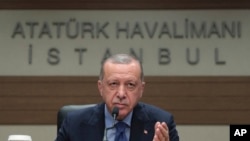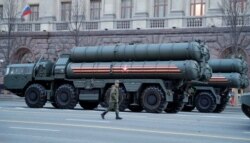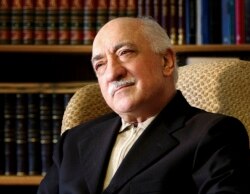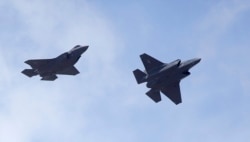The U.S. and Turkey remain on a collision course with the imminent delivery of Russian S-400 missiles. With reports one battery will be based in Ankara, analysts suggest Turkish President Recep Tayyip Erdogan has a personal stake in the escalating crisis.
U.S. State Department spokeswoman Morgan Ortagus warned Tuesday of "real and negative consequences" if the Russian missiles are procured. Turkish Foreign Ministry spokesman Hami Aksoy said Wednesday that the United States should avoid "missteps to harm bilateral relations."
Washington claims the missiles will compromise NATO's military defense systems, in particular the stealth technology of its latest F-35 fighter jet, and it is threatening sanctions against Ankara if it goes ahead with the purchase.
Despite mounting diplomatic pressure and Washington’s offer of its Patriot missile system as an alternative, Erdogan has stood firm. In the past year, a presidential source repeatedly insisted Erdogan had made up his mind on buying the S-400 missile system from the Russians.
Reports this week in pro-government media that one of the two missile batteries will be based in Ankara are seen by analyst Atilla Yesilada of Global Source Partners, a business management consultancy based in New York, as an explanation for Erdogan's stance.
Protection for Ankara?
"If one of the batteries is truly located in Ankara, where it would have no defensive purpose in protecting vital assets against foreign threats, then I would think President Erdogan would have a personal stake in this,” Yesilada said, “as the only asset worth protecting in Ankara is the parliament and the palace.
"But I don't want to think that our president or any president has become so paranoid that he fears his own air force. To me that doesn't seem rational."
The S-400 battery reportedly would be located at the Akinci Air Base near Ankara. The air base was the headquarters of plotters convicted in the 2016 failed coup attempt, in which 251 people died. Erdogan's palace and parliament were repeatedly bombed during the putsch.
Three years on from the coup attempt, mass arrests of military personnel are continuing. On Monday, prosecutors issued 176 warrants for armed forces members in an operation encompassing the army, air force and navy. Since the coup attempt, Turkey has purged 716 fighter pilots.
Ankara blames Turkish cleric Fethullah Gulen for masterminding the takeover attempt. The U.S.-based Gulen vehemently denies the charge.
"How often do you expect your air force to bomb you?” said international relations expert Soli Ozel of Istanbul's Kadir Has University, adding, “The choice of the S-400 also suggests where you expect your enemies to come from."
"If the country has not resolved these [perceived military threat] issues, we are in deeper trouble," said Ozel. "This is not an S-400 matter any longer. It's about Turkey's political system, the legitimacy of the system, the unity of that system and all sorts of things."
Ankara blames Washington for its decision to buy the S-400, claiming the reluctance of then-President Barack Obama and Congress to sell Patriot missiles forced it to turn to Moscow. However, questions remain about the military rationale of procuring Russian missiles.
'No logic at all'
"From a military point of view, there is no logic at all," said retired Turkish Gen. Haldun Solmazturk, who now heads the 21st Century Turkey Institute, an Ankara-based research organization.
"Air defense requires the highest degree of integration,” he said. “This is a NATO-wide integration, including fighter-bombers, the command-control air defense system, et cetera.” Air defense in NATO is a solid and integrated system, he said, and “introducing the Russian-made S-400 system would be unthinkable."
Turkey's long borders have meant the country's air defenses relied for decades on fighter jets, rather than less mobile missiles. Two years ago, several Turkish towns on Syria's border were hit by short-range missile attacks blamed on Syrian-Kurdish rebels. However, observers say any missile threat has now passed.
"Turkey does not need an anti-missile system," said Yesilada. "Who possibly would attack us with missiles? The only countries that have such potential are Russia and Iran, and they are allies. No one else has an arsenal with long-range missiles."
However, Ankara insists, the S-400 will also enhance its rapidly expanding indigenous defense industry, through technology transfer. "With God's will, we will start joint production. There are no problems," Erdogan told reporters Wednesday.
Technology transfer was and is a stumbling block in Ankara's efforts to procure U.S. Patriots. But observers point out it remains unclear how much of the technology from its most advanced missile system Moscow is prepared to share, given Turkey's NATO membership.
Washington is also warning that if the S-400 missile sale is completed, Turkish defense companies will be thrown out of the consortium building the F-35 jets, losing billions of dollars in contracts.
The rising cost for Ankara of procuring S-400s can only result in greater scrutiny into why Erdogan remains so determined to complete the purchase.







